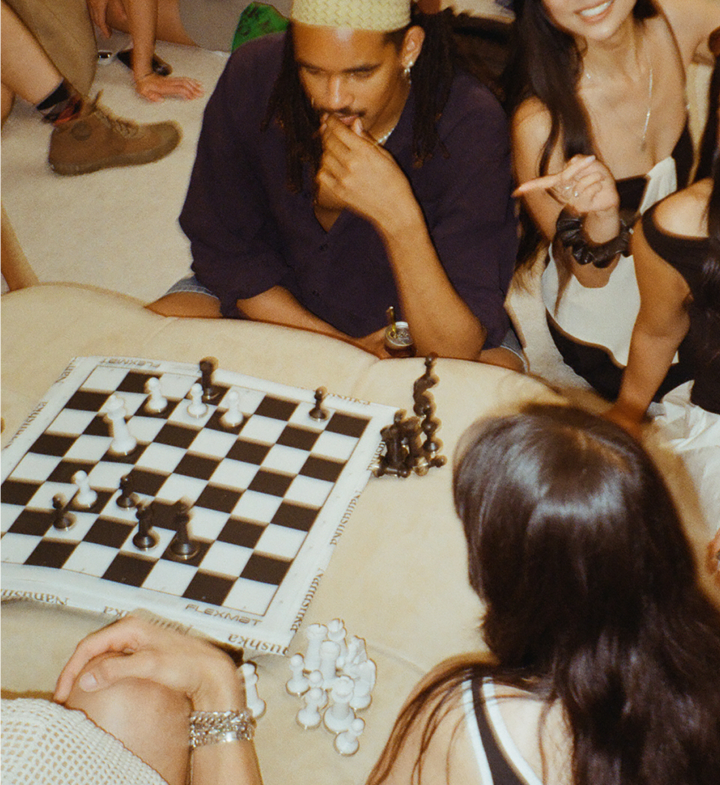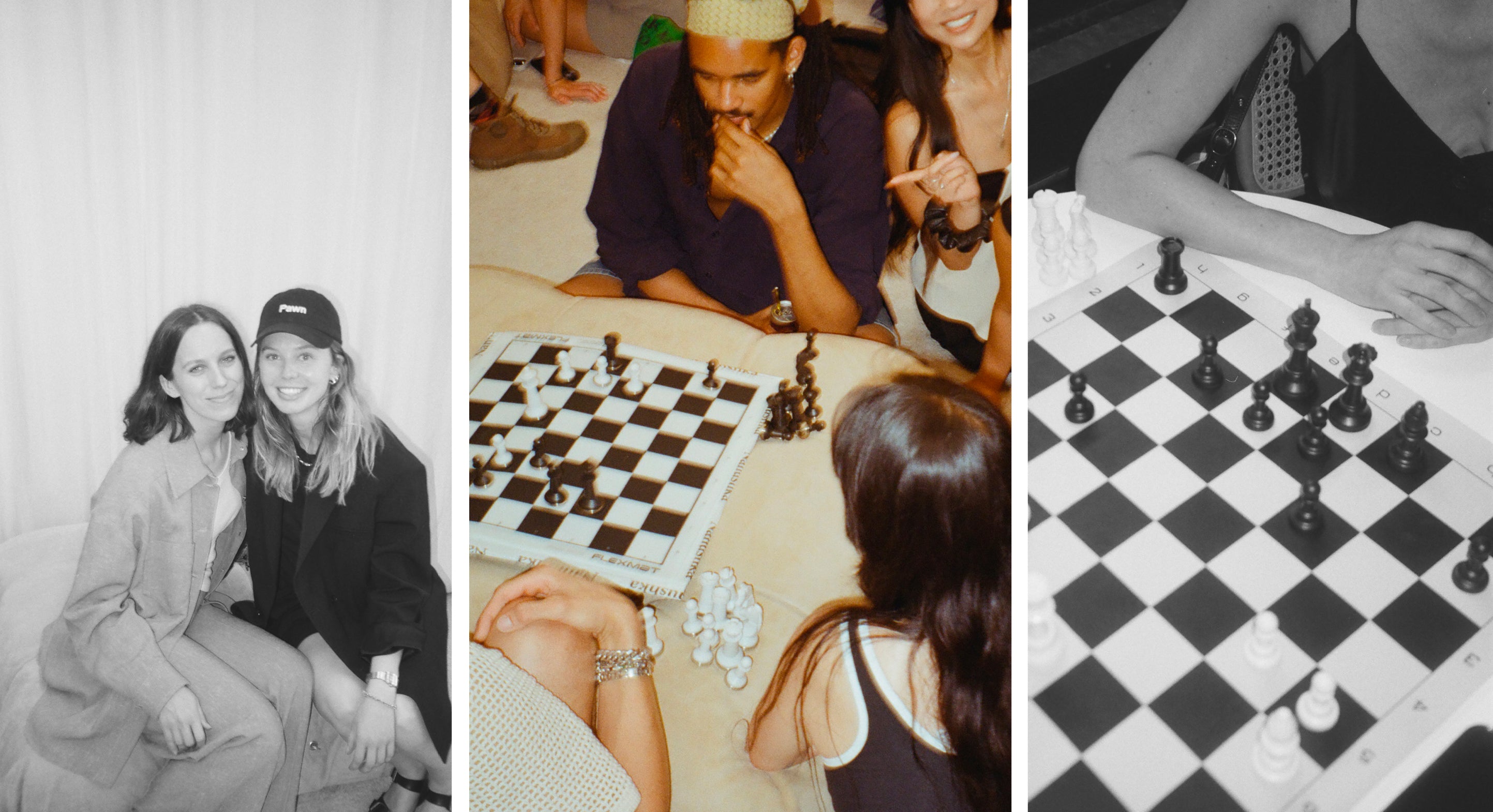Nanushka Meets
Pawn Chess Club
Simone Robert and Isabel Münter are the New York City-based founders of Pawn Chess Club, a modern reinterpretation of chess culture that blends community with creativity. In Nanushka’s latest Summer Solstice campaign, the summer mood and character case study of ‘The Chess Player’ translates the brand’s ethos of contemporary craft, where the chessboard appears as a brand symbol and is brought forward through playful design. It’s an idea that aligns with Pawn’s own ethos: a lifestyle where intention, aesthetics and experience intersect.
Pawn Chess Club hosts events in thoughtful, design-led spaces, including at Nanushka’s New York Flagship Store last week. They create warm, curated environments similar to the Nanushka cosmos, reflecting the community they’ve built.
“Chess inherently invites presence. You need to stay focused on the board, on your opponent, on the game at hand. That kind of attention feels rare now, and people seem to crave it.” - Simone Robert and Isabel Münter
-


1. Can you tell us the story of how Pawn Chess Club was born?
We founded Pawn Chess Club in 2023 because we just wanted to play chess with our friends. You might be surprised by how many places there are to play chess in New York, but many don’t feel particularly welcoming to beginners, which so many of our friends are. After struggling to find the right kind of space, we decided to create one ourselves - somewhere we could bring our friends to play chess, or just hang out at the places we already loved. We partnered with Casino, made an Instagram account, and haven’t stopped holding chess nights since then.
2. How are you reinterpreting the culture of chess for younger audiences?
A lot of chess spaces are focused on competition, and being the best player in the room, sometimes at the expense of approachability. It’s been important for us to make a space that’s explicitly beginner-friendly from the start. Lots of people come to our events and don’t play chess at all, or better yet, they don’t intend to play originally, but end up picking up the game on the spot. We’ve also played a lot with the format itself: events in galleries, collaborations with artists, speed dating and other cultural overlaps. This kind of variety helps us reach new audiences and keeps things interesting for both us and our community.
Photographed by Luis Garcia
3. How did you begin building a community around the game, and why did chess feel like the right foundation?
On our first event in May 2023, about 50 people showed up, almost entirely our friends and family, but a handful of people found us online and showed up out of curiosity. By our second event, that ratio had completely flipped — 80% or more of the people were strangers. We never set out to build a following, just provide somewhere where people could connect, and we’re so happy to know that people find value in this. The club was really born out of a selfish love for playing chess, but we do love how easy it is to connect over a game of chess. You can sit in silence across the board, or you can chat through an entire game. It makes a surprisingly good spectator sport, bringing in even more people in a single game. Compared to a typical bar night, it’s a structured, intentional way to meet new people and that’s turned out to be really comfortable for a lot of people.
4. What role does chess play in creating a space to slow down and be present?
Chess inherently invites presence. You need to stay focused on the board, on your opponent, on the game at hand. That kind of attention feels rare now, and people seem to crave it.
5. What do you hope people walk away with, emotionally, intellectually or socially, after spending time at Pawn Chess Club?
We hope people feel more comfortable putting themselves out there and learning something new. It’s great to be amazing at chess, but even cooler to be willing to try something new, be bad at it, and enjoy yourself anyway. Being a beginner is such an expansive place to be, and we hope the kind of openness Pawn invites spills over into other parts of people’s lives. Sure, you might improve at chess when you come to Pawn, but that’s not always the point.
6. Style and self-expression are part of both fashion and chess, from the board to the pieces and the rituals around play. How does aesthetic influence the experience you’ve created at Pawn?
It would be naive to pretend that many people aren’t initially drawn to chess because they love how it looks. How many people do you know that have chessboards in their home purely as a design object, without necessarily knowing how to play? That visual pull can be a great entry point, and we hope that once people come to a Pawn event, they’re inspired to develop a more meaningful, lasting relationship with the game. We’re both visual people who are inspired by the evolution of chess pieces over hundreds of years, and the artists that have taken up chess as their muse, like Isamu Noguchi and the incredible women of the Fluxus movement. Given this, and how lucky we are to partner with beautiful venues, creating a visual world is almost a given, but more than anything, we feel lucky to have built a space that feels warm and welcoming enough to keep people coming back.
Shop New Arrivals
- Choosing a selection results in a full page refresh.
- Opens in a new window.












